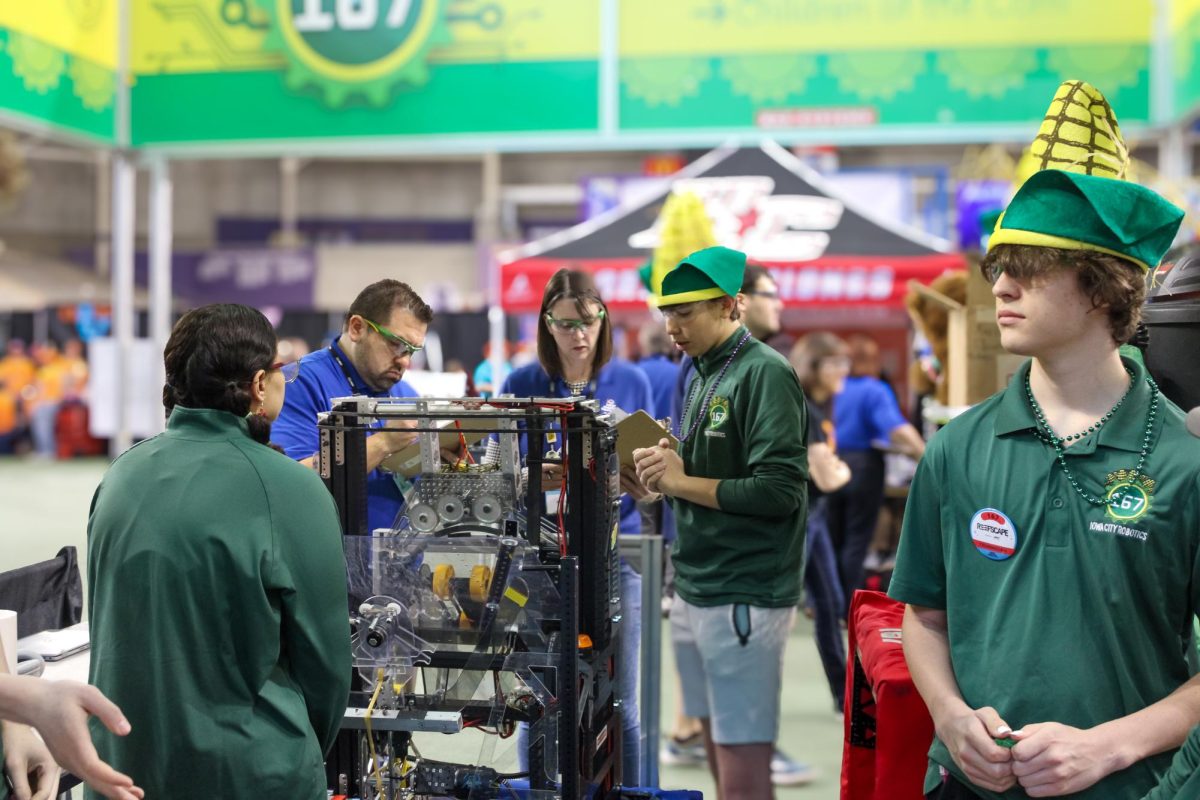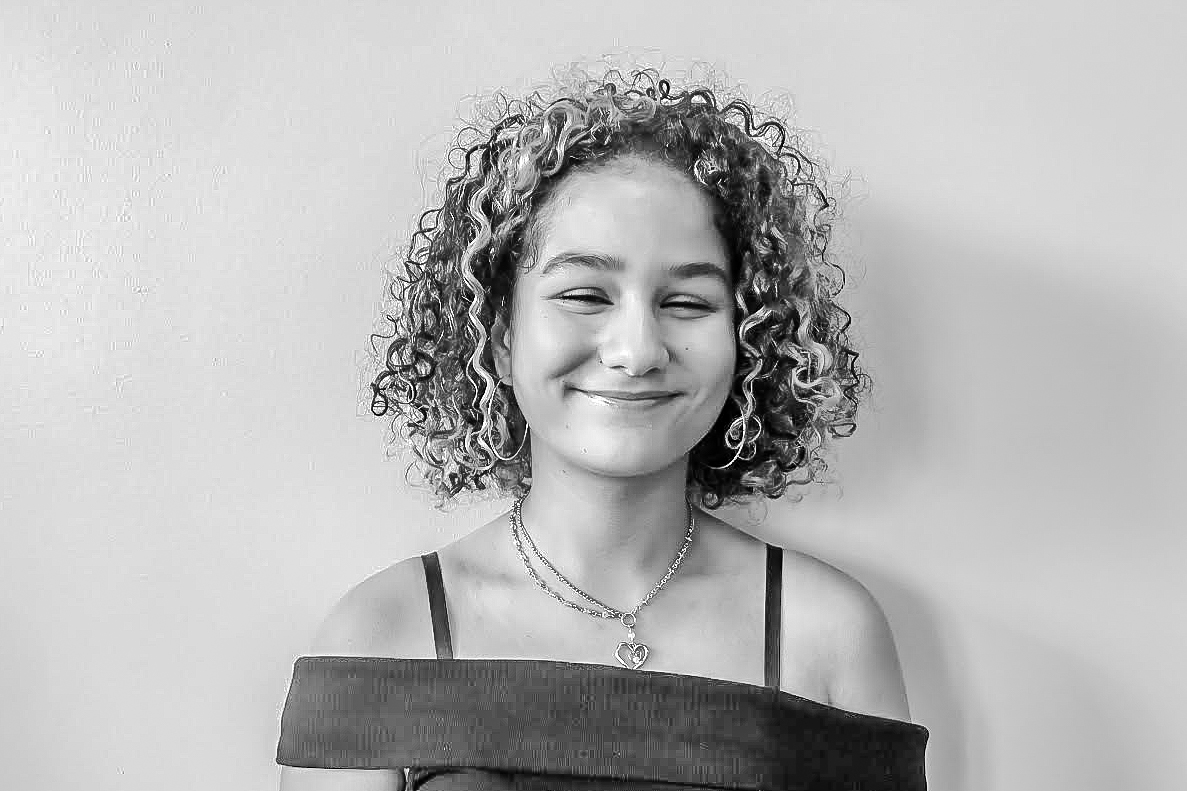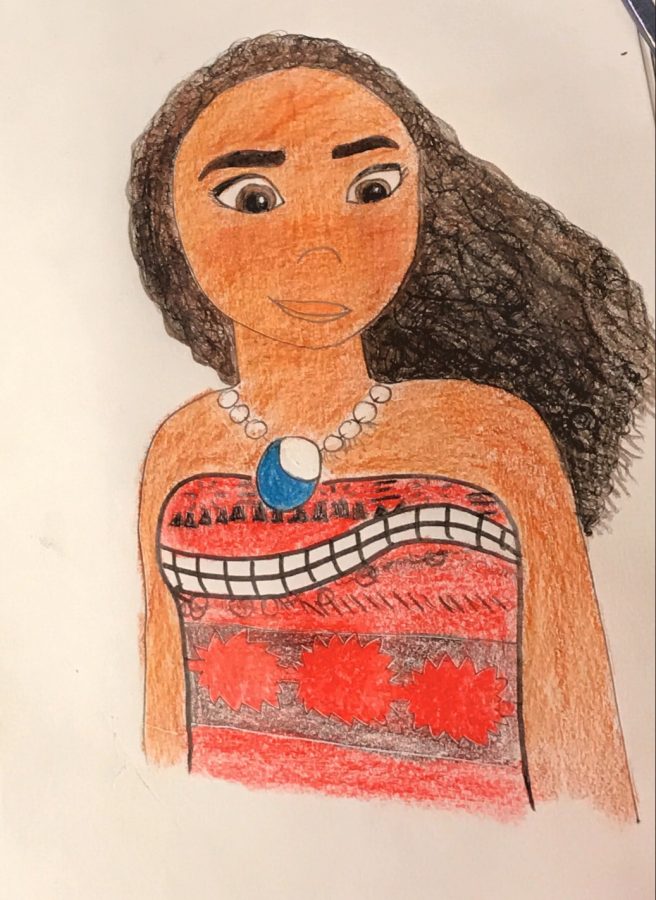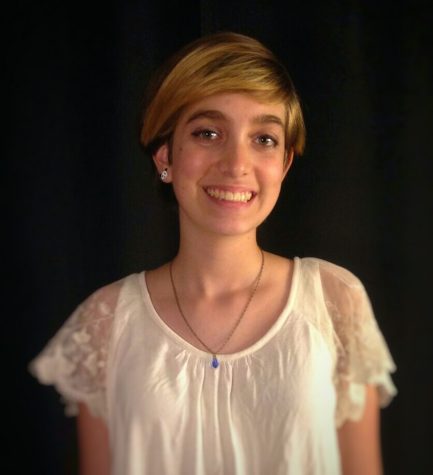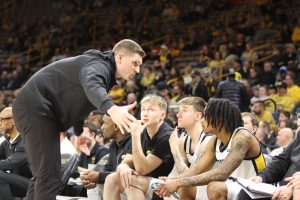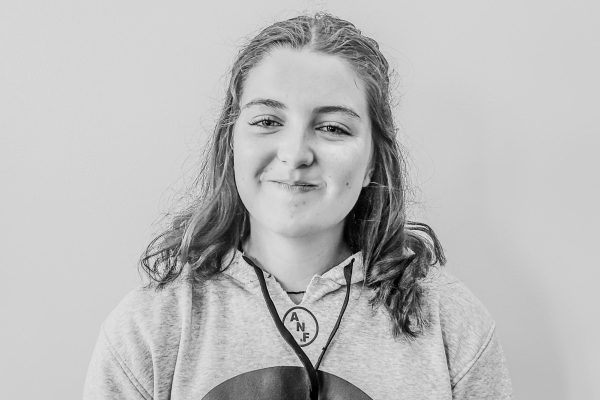A New Age of Disney
Disney’s Moana paving the way for future generations of princesses
December 9, 2016
Gone are the days of princesses in towers who need saving. Far from the old standards is Disney’s newest heroine Moana. From her race to her story to her lack of a love interest, Moana is the start of a new era of Disney princesses.
A simple read-through of the plot might not reveal much strength in her character; the female heroine wants to go somewhere she’s not allowed (much like Ariel, Jasmine, Anna and Rapunzel) and this makes her defiant. She goes on an adventure with her animal sidekick and meets a guy. Spiced with magic and music, this is the outline of many Disney films. What makes this one different is that Moana actually does the saving (in this case, of the world.) Her demigod friend Maui does help her defeat the lava monster Te Ka, but Moana is the one who risks her life to put the heart of Te Fiti back in its place.
Another thing that makes Moana stand apart from other princesses is her lack of a love interest. The only other princesses to have no partner are Merida and Elsa, from Brave and Frozen respectively. Moana’s relationship with Maui is more one of siblings than of lovers. This helps illustrate even better the message of the movie: girls don’t need princes to save them, they can save themselves.
Everyone knows that a Disney movie is not complete without songs, and Moana delivers. With lyrics by Hamilton writer and star Lin Manuel-Miranda and vocals by Auli’i Cravalho and Jemaine Clement, the soundtrack is a good 4.5 stars. Moana only sings a couple songs by herself, but that does nothing to take away from the music’s quality.
The most obvious difference, though, is her ethnicity. Moana is a Pacific Islander, and this is the thing that most people find problematic with the movie–Disney’s representation of the culture. Some say that Maui buys into the stereotype that Polynesian people are overweight. This can be pretty easily contradicted by the fact that no other men in the movie are anywhere near as big as Maui. Also, Maui is a demigod. Another problem people have is that in Hawaiian culture, Maui is a full god. He’s a trickster, but not as dumb as the movie makes him. Some see him as a caricature of the Polynesian deity. Just think about this, though: it’s not as bad as Peter Pan’s representation of Native Americans or the Dumbo character Jim (the) crow. Now, those are awful.
Beyond the little girls this movie is obviously aimed at, it could set a great example for boys, too. If little kids, whatever their gender, see strong women in the media and especially in Disney, that will definitely influence the way they see girls and women. Instead of seeing girls as weak and inferior, boys will see them as equals who should be respected.
Some may argue that Frozen started this new era of Disney Princesses, but neither Anna nor Elsa set a very good example. Anna, who is naive and seemingly brainless, falls into the age-old Disney cliche of falling for a man she just met. She doesn’t end up with Hans, but she’s not the brightest bulb. She does save her sister at the end, which earns her a few points, but it doesn’t balance out Elsa’s lack of… everything. Her personality is mostly the fault of her parents, who taught her to hide her power and, with it, her feelings. This is why, when faced with a challenge, she completely loses control. Needless to say, neither princess is a very good role model.
Anticipate a new era of Disney princesses. Smart, brave, diverse ones, just like the girls they’re meant for.





